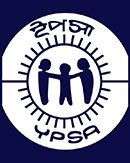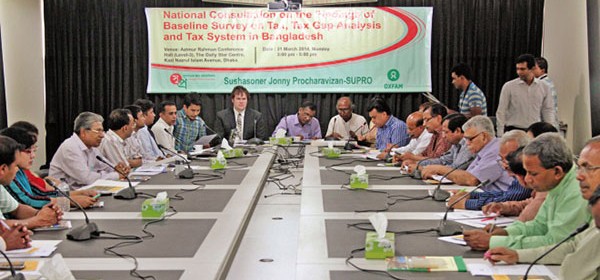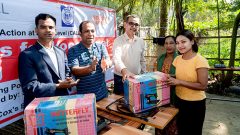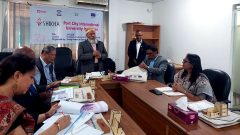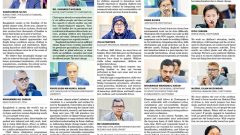Most people at grassroots level find the tax payment system unfriendly and feel discouraged to pay taxes due to complexities, according to a survey unveiled by SUPRO. Sushanoner Jonnno Procharavizan (SUPRO) has conducted a baseline study on ‘Tax, Tax Gap Analysis and Tax System in Bangladesh’. Among other objectives, the study was greatly focused on finding the potential ways on how to engage people in raising voice in favor of pro-poor tax policy and capturing ways on engaging policy makers and administrators of the government in introducing fair tax policy.
On 31 March SUPRO has unveiled the survey findings in the presence of civil society representatives, policy leaders and duty bearers and media people at the capital city Dhaka. Among the participants, a member of National Board of Revenue (NBR) Mr. Kalipada Halder was present as the Chief Guest on this special occasion while Ms. Farah Kabir, Country Director, Action Aid Bangladesh, and Mr. Conor Molly, Associated Country Director In-charge, Oxfam attended as the Special Guest. The event was presided over by SUPRO Chairperson Mustafizur Rahman Khan and moderated by General Secretary of SUPRO and Chief Executive of YPSA Md. Arifur Rahman while Rubbayat Hashmi , a Researcher presented the findings of baseline survey.
The survey was conducted in Barisal, Kushtia, Rangamati, Hobiganj, Rajshahi and Shariatpur to create baseline data on different tax related issues and raise voices to establish a pro-poor tax system.
The study also finds that more than half the respondents think the present 15 percent VAT, an indirect tax, is high and it should not be identical for everyone because of income differences among people.
Some 63 percent favour raising the VAT on luxury goods and said the government should not impose VAT on necessary goods for the benefit of the low income groups.
A chunk of respondents feel the wealthy have the ability to access government benefits and services more than the poor.
The survey suggested the National Board of Revenue (NBR) establish help desks in each tax circle, ease the process of income declaration and payment, online filing of tax returns, and train and motivate tax officials so that they cooperate with taxpayers with positive attitudes.
It also recommended exempting essential goods and services from the purview of VAT for the benefit of the poor.
Farah Kabir, country director of ActionAid Bangladesh, said people pay taxes to get better state services, but we do not receive enough data from the government on how the tax money is spent.
“There is a scarcity of safe drinking water. Many roads are broken. People ask why they will pay taxes,” she said. “Accountability is very weak.”
She favoured increased public investment in social services, especially health and education, to give a wider percentage of the population the benefit of taxes.
The ActionAid country director also suggested the government reduce dependence on indirect taxes. No foreign company should be given tax-exemption privileges; multinational companies will not leave Bangladesh due to a lack of tax waiver because Bangladesh is a market of 16 crore people, she said.
Conor Molloy, associate country director in-charge of Oxfam Bangladesh, said awareness building on the tax system is necessary. He preferred a pro-poor tax system and increased state investment in social services.
Kalipada Halder, NBR member for legal and enforcement, said tax exemption creates scope for tax evasion. People shift incomes from other sectors to the sectors that get waivers to evade taxes, he added.
Discussants also expressed frustration over inadequate health, education and other public services, despite paying taxes. They demanded the government catch tax evaders and increase the collection of direct taxes to ensure a fair taxation system.
